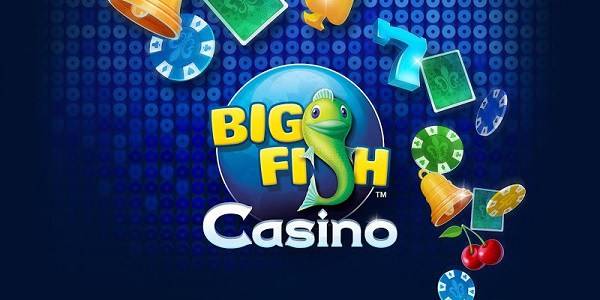Big Fish Casino Comes Under Scrutiny From Nations Cracking Down on Social Gaming, Loot Boxes, More
- 15 countries part of crackdown
- Focus on loot boxes, skins, and even Big Fish Casino
- Scientific research: “Our large-scale study found important links between loot box spending and problem gambling”
15 countries and the United States plan to tackle the problem of gambling and video games. These joint effort takes aim against loot boxes, skin gambling, and more.
What They're Cracking Down On:
“We have joined forces to call on video games companies to address the clear public concern around the risks gambling and some video games can pose to children," UK Gambling Commission Chief Executive Neil McArthur said in a statement. "We encourage video games companies to work with their gambling regulators and take action now to address those concerns to make sure that consumers, and particularly children, are protected.”
The declaration identifies four specific areas of concern:
Skin betting—Third-party sites that allow users to wager money or in-game items for a chance at earning better items. Valve has already faced pushback from Washington State regulators for Steam's role in "facilitating" such skin-gambling schemes.
Loot boxes—In-game purchases that offer randomized rewards. Some loot boxes have already been ruled as illegal in the Netherlands and Belgium, and there have been some attempts to do the same from some US lawmakers.
Social casino gambling—Apps like Big Fish Casino in which users can optionally spend money on virtual gambling chips if they don't feel like waiting for the in-game currency to replenish. A US District court ruled Big Fish Casino constituted illegal gambling earlier this year, and there are multiple active lawsuits surrounding other such games.
"The use of gambling themed content within video games available to children."—In addition to the above, this would seemingly apply to games with poker or slot-machine-style minigames (or, uh, Casino Kid for the NES).
The regulators also hope to "enable an informed dialogue with the video games and social gaming industries," and say they "anticipate that it will be in the interest of these companies whose platforms or games are prompting concern, to engage with [gambling] regulatory authorities to develop possible solutions."
These Countries Signed On
- Austria: Alfred Hacker, director, Federal Ministry of Finance
- Czech Republic: Karel Blaha, director of the State Oversight Over Gambling Department
- France: Charles Coppolani, chair of the French Online Gaming Regulatory Authority
- Gibraltar: Andrew Lyman, executive director, Gambling Division, HM Government of Gibraltar
- Ireland: Brendan Mac Namara, principal officer, Gambling Policy Division, Department of Justice and Equality of Ireland
- Isle of Man: Steve Brennan, chief executive, Gambling Supervision Commission
- Jersey: Jason Lane, chief executive, Jersey Gambling Commission
- Latvia: Signe Birne, director of Lotteries and Gambling Supervisory Inspection of Latvia
- Malta: Heathcliff Farrugia, chief executive officer, Malta Gaming Authority
- The Netherlands: Jan Suyver, chair of the board of directors of the Netherlands Gambling Authority
- Norway: Henrik Nordal, director deputy general, Norwegian Gaming Authority
- Poland: Paweł Gruza, undersecretary of state in the Ministry of Finance
- Portugal: Teresa Monteiro, vice president of Turismo de Portugal, I.P
- Spain: Juan Espinosa García, CEO, directorate general for Gambling Regulation
- Washington state: David Trujillo, director, Washington State Gambling Commission
- United Kingdom: Neil McArthur, chief executive officer, UK Gambling Commission
Australia Says Loot Boxes More Like Gambling Than Baseball Cards
Lead investigators Dr. David Zendle and Dr. Paul Cairns examined nearly 7,500 individuals. The researchers claim people who have problems with gambling tend to spend more on loot boxes.
“Our large-scale study found important links between loot box spending and problem gambling,” reads the committee’s report. “The more severe a gamers’ problem gambling was, the more likely they were to spend large amounts of money on loot boxes. These results strongly support claims that loot boxes are psychologically akin to gambling.”
“Industry statements typically disassociate loot boxes from gambling,” Cairns and Zendle said in a statement. “They instead highlight similarities between loot boxes and harmless products like trading cards or Kinder Surprise eggs. … By contrast, researchers argue that loot boxes share so many formal similarities with other forms of gambling that they meet the ‘psychological criteria’ to be considered gambling themselves. These results support the position of academics who claim that loot boxes are psychologically akin to gambling.”
This Video Game has Resulted in 200+ Divorces
Acording to a Divorce Online press release, at least 200 ex-spouses in the U.K. have cited Fortnite as a primary reason for their divorce. To put that into perspective, Divorce Online has received 4,665 divorce petitions in 2018. If 200 ex-spouses referenced Fortnite as a cause, that means the game could be at least partially blamed for 5% of the total divorces in the U.K. this year.
That’s pretty substantial! The game has skyrocketed into an obsession for many, but a Divorce Online spokesperson said “addiction to drugs, alcohol and gambling have often been cited as reasons for relationship breakdowns but the dawn of the digital revolution has introduced new addictions.
“These now include online pornography, online gaming and social media, so it is no surprise to us that more and more people are having relationship problems because of our digital addictions.”
- Jagajeet Chiba, Gambling911.com















